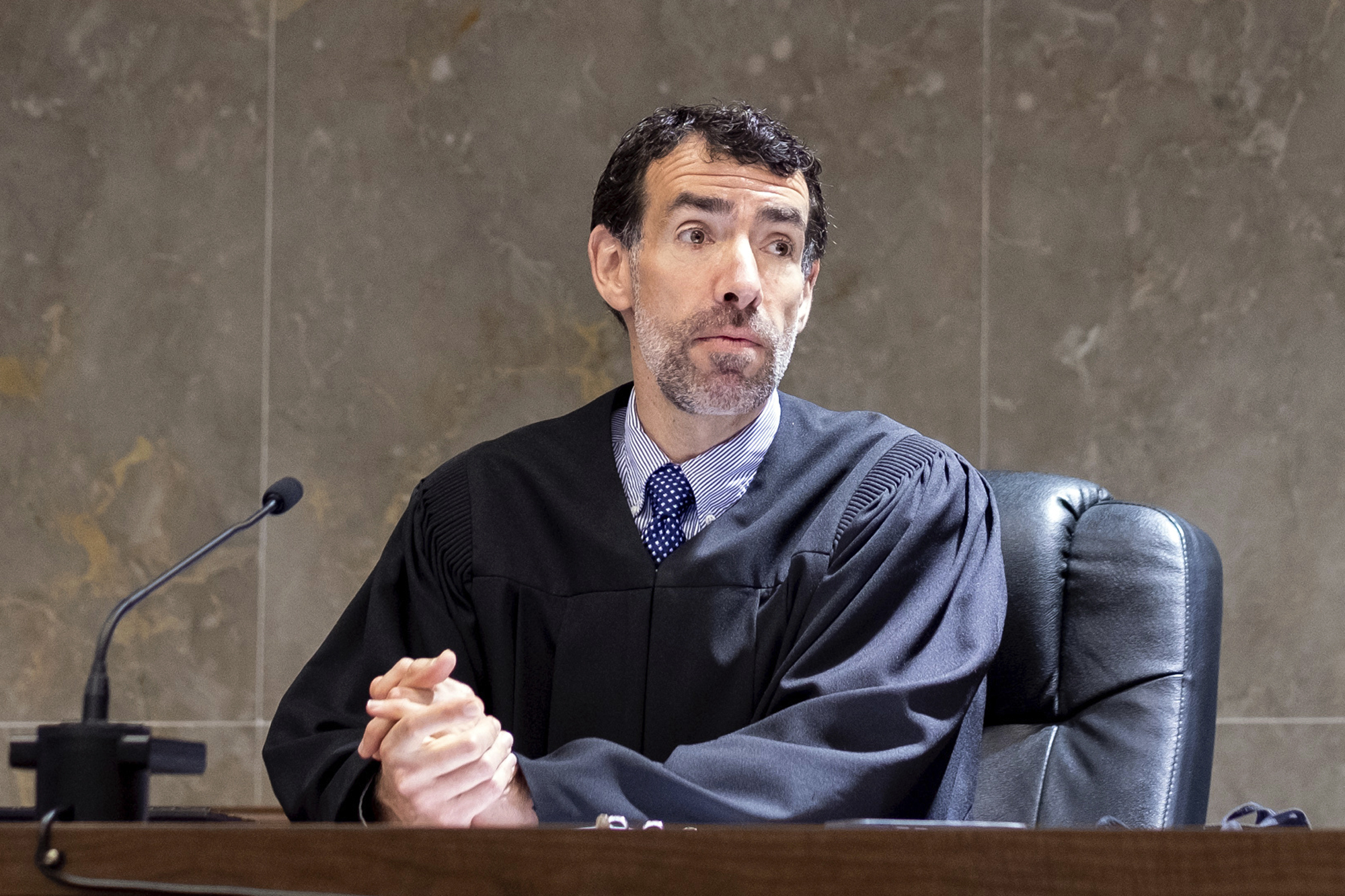Judge: Grand jurors in Georgia Trump probe must tread lightly, but can discuss final report


A free daily email with the biggest news stories of the day – and the best features from TheWeek.com
You are now subscribed
Your newsletter sign-up was successful
The loquacious forewoman of the Fulton County special grand jury that investigated former President Donald Trump and attempts to overturn the 2020 election in Georgia has followed guidelines about what she can and cannot talk about, Judge Robert McBurney told ABC News on Monday.
Last week, the forewoman, Emily Kohrs, gave several interviews, revealing that the grand jury recommended indictments against several people and sharing her thoughts on seeing Sen. Lindsey Graham (R-S.C.) and Rudy Giuliani as part of the proceedings.
The grand jury was seated in May, and after looking at evidence from 75 witnesses, delivered its final report in January. McBurney, who is overseeing the case, told ABC News that Fulton County District Attorney Fani Willis asked that he hold a "farewell session" with the jurors, during which he "reminded them of their oath, which is a statutory obligation that they not discuss with anyone outside their group their deliberations — that's the one word that's in the oath."
The Week
Escape your echo chamber. Get the facts behind the news, plus analysis from multiple perspectives.

Sign up for The Week's Free Newsletters
From our morning news briefing to a weekly Good News Newsletter, get the best of The Week delivered directly to your inbox.
From our morning news briefing to a weekly Good News Newsletter, get the best of The Week delivered directly to your inbox.
Jurors were told they "can talk about the final report," McBurney said, but it could get "problematic" if they start to "synthesize the testimony." He also explained that he let jurors know not to "talk about what the group discussed about the witnesses' testimony," but said they "can talk about witness testimony," things prosecutors said, "and then finally, you can talk about the final report because that is the product of your deliberations, but it's not your deliberations."
Lawyers for Trump jumped on Kohrs' interviews, arguing that they "compromised" the investigation and rendered any indictments "faulty." The special grand jury, however, did not have the power to issue indictments, McBurney said. Its "sole role" was to "prepare a report that was merely a set of recommendations for the district attorney — full stop. Nothing more. And so folks should think long and hard about what impact, at all, this special purpose grand jury's work would have should there be an indictment down the road. The grand jury could not and did not bring charges against anyone."
McBurney also clarified that federal grand jurors have "a more extensive oath of secrecy than is the case in Georgia," and it's "just important not to apply the wrong standard to grand jurors in this jurisdiction. Their oath requires them to keep secret their deliberations, and it is a different oath than what federal grand jurors take."
A free daily email with the biggest news stories of the day – and the best features from TheWeek.com
Catherine Garcia has worked as a senior writer at The Week since 2014. Her writing and reporting have appeared in Entertainment Weekly, The New York Times, Wirecutter, NBC News and "The Book of Jezebel," among others. She's a graduate of the University of Redlands and the Columbia University Graduate School of Journalism.
